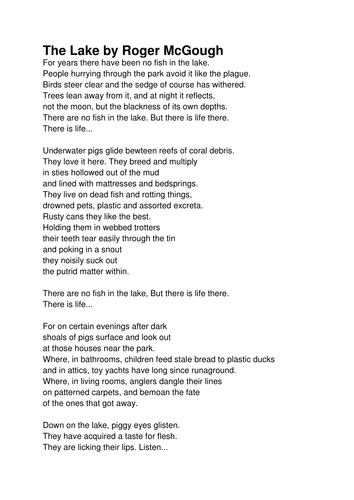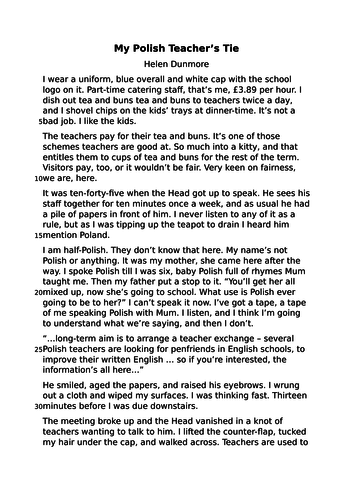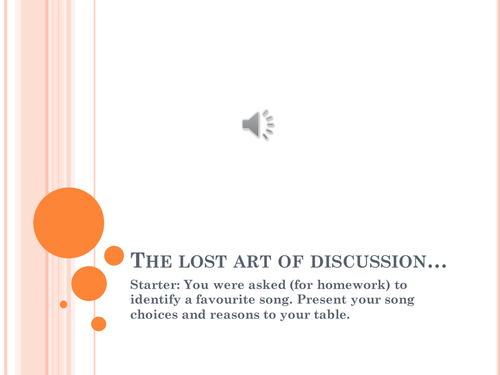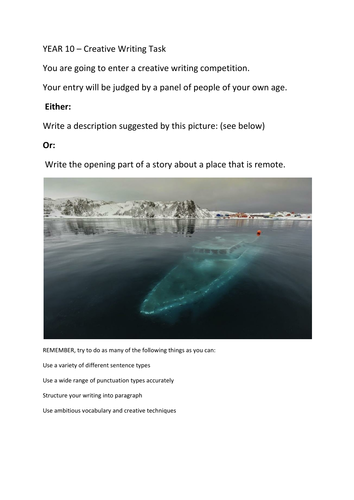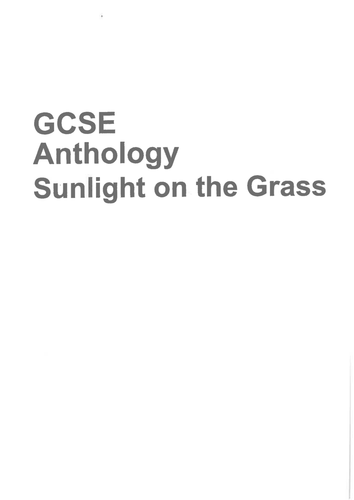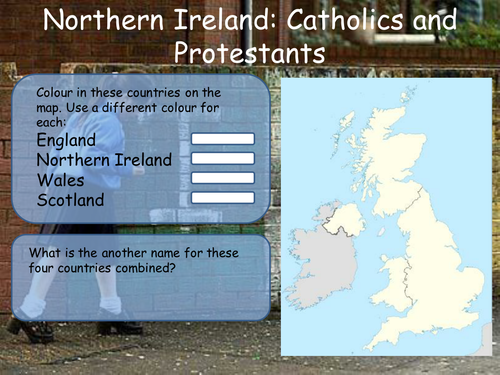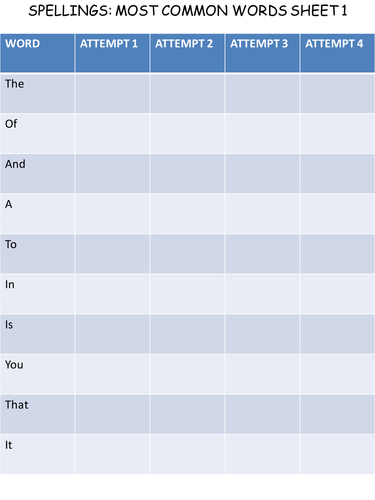
229Uploads
576k+Views
1418k+Downloads
All resources
Sale

Punctuation vs Teachers: Tracking punctuation skill progress and making it fun(ish...)
A series of activities that are designed to be taught over time. There is a bit of initial leg-work to do in setting up the spreadsheet and, truth be told, I’ve had more success using this with smaller classes than with larger ones - the volume of specific data generated gets unwieldy with the larger groups.
So, I’ve divided punctuation up into three groups - BASIC, MID-RANGE and ADVANCED. The idea is that you teach/go over/re-demonstrate the type a type of punctuation. Then, the students are given ten minutes to write where they focus on using that type of punctuation. Each punctuation type has a points value, and the goal is to “defeat” a possessed teacher by using that type of punctuation. The powerpoint presentations each show a teacher (or a combination of teachers) making their way across the screen over the course of ten minutes. There’s the option of spooky orchestral music too.
There are specific work sheets that each student will need - each work sheet contains the points value of each punctuation type and a grid where you can wither self/peer/teacher assess depending on how you want to set the lesson up.
As the class progresses, so to does the complexity of the task. Each new level incorporates a new type of punctuation OR (more importantly) a new combination of focuses. For example, level 3 requires students to use BASIC and MID-RANGE punctuation to defeat two teachers.
What I found useful was the specific nature of the feedback I got: I could see quite clearly which punctuation types were defeating each student and which punctuation type was an issue for the class as a whole. And, if the class lost (which they did on more than one occasion) then they retried the level the following week.
We used this in SPAG lessons in combination with some other elements - it can easily be made into a whole lesson.
A useful little tool…
Sale

KS3: SPaG Understanding a Text Lessons (Using Michael Grant's "Gone" series as a stimulus)
SPAG lessons can get a little flat at times. These are the worksheets I’ve designed to use with my own SPAG group. It is designed to be taught in tandem with a Dystopian Fiction SoW that ends with a reading assessment. Specifically, these lessons focus on an extract taken from Michael Grant’s “Gone” - all extracts taken from the first chapter. The aim is to develop an increased understanding of each text through the asking of more and more complex questions. The tasks can be sat as part of a lesson (I reckon they’ll take most groups between 10-30 minutes depending on the groups setting), or make ideal homework and/or extension tasks.
At the moment, the resources are set up to be taught to lower set year 7 students. But, it won’t be too hard to change the tasks to more suitable ones for any set.
UPDATE: I’ve included some versions that are more suited to be printed out. They have some basic RAG feedback grids on the back with some generic targets.
Sale

AQA English Language Data Collation Spreadsheet aka "The Machine"
Attached is a spreadsheet that does an awful lot of work for you. To summarise, it does the following:
Allows for easy collation of GCSE Language marks on a paper by paper basis AND as a whole examination
Allows for easy identification of various student demagraphics - EAL, PP and so on
Allows you to measure progress against students best, average and last marks across both papers
Works out "how many marks" until you hit target grades for individual students
Colour codes grades and marks to allow for at a glance progress checks
Once you buy this spreadsheet, you will not need to get another LANGUAGE spreadsheet. The document contains instructions on the ARRAY tab as to how to update .
Oh, and if you do get this, I suggest you LOCK the individual spreadsheets ASAP: the document is set up to allow you to do this and still enter the data, you just won't be able to accidentally delete any of the coding, thus removing any brain overloads that might ensue.
I am using this at my current school and there are several other schools who are using this system with good reports.
Happy spread-sheeting!
PS - Yes, there is a page that reads exactly the same but for a version that caters for the AQA Literature course. The spreadsheets are different. Here's the link/address to the LITERATURE version:
/teaching-resource/aqa-english-literature-data-collation-spreadsheet-aka-the-machine-11405407
Sale

Quick Lesson POETRY - Roger McGough "The Lake"
Need a quick lesson? Look no further. A whole lesson based around Roger McGough's "The Lake" - I know it can be found online elsewhere, but I include it here for convenience's sake. Perfect for when you need to fill that irritating cover lesson with something meaningful.
Sale

Spell Quest - making spelling fun
A summer spent playing word games with my kids lead me to this idea.
The idea is that the students are supplied with a grid of letters. They use these letters to build words which cause damage to a cartoon monster. The bigger the word, the more damage done to the monster.
I’ve made it more and more difficult as the monsters develop - you have to use certain letter types for example.
I plan to give each child one grid per week to complete and have their peers mark it.
So you are completely aware, I have left all of the grids blank apart from on a few. You will need to fill these in yourself. Also, I have left the challenge component blank too. This will allow you to create challenges that reflect the specific types of spellings you are looking at - double damage awarded for homophones for example.
There’s massive scope for differentiation in here too. I’ve included a whole class version of the spelling levels, as well as a photocopy friendly version too.
I have long believed that making school a little more like computer games can be helpful - this is my first attempt at exploring Gamer Theory as I have dubbed it.
Watch this space for more. Have to figure out how to do something similar with the other components of SPAG and Reading now…
ADDITION: I’ve included some completed versions of the pack to give you an idea of what they could look like. Pay attention to the NOTES section of the power points too. These grids have been designed to be used in tandem with the Escape From Kraznir scheme of work.
ADDITION: I’ve also added a new powerpoint that works as a whole class exercise. You don’t need the sheets, just paper and the will to go on…
Sale

AQA English Literature Power and Conflict Poetry: Random Comparative Question Generator
Does exactly what it says. This spreadsheet will create one random comparative question for and will generate a new one every time you double-click a cell and press enter. A word of caution in that you cannot retrieve the old question. But, this is very useful for revision and or cover lessons.
I’ve left room for you to add in your own question stems and you can manipulate the poetry lists too. I’ve left some instructions on the relevant tab.
Hope you find this useful.
Sale

AQA English Language Paper 1 Section A Mock Exam - My Polish Teacher's Tie
I've found another use for all that knowledge we have about the old AQA English Lit anthology (The Sunlight on The Grass anthology). I have started to turn them into English Language Paper 1 Section A Mock Exams!
This is one of them. There is no mark scheme, but if you use the Paper 1 mark scheme from the AQA website you should be fine.
This one uses the opening of My Polish Teacher's Tie.
Sale

Year 9 Preparation for GCSE Scheme of Work: Writing from around the world
A resource dump for my first attempt at preparing a middle set year 9 class for the rigours of the new GCSE - some success, but the class dynamic was more of a problem than the lesson resources themselves. Some editing may be required, but if you are wondering about how to approach the Section B parts of the exams, this covers a lot of bases.
Sale

Discussing and Listening
Four lessons that focus on improving your students abilities surrounding discussion and listening - somewhat lost art forms. Numerous discussion topics at group and whole class level.
Bundle Sale

KS4 Creative Writing Pack
A series of lessons and resources that all work towards making KS4 students better creative writers.
Sale

AQA GCSE English Language Paper 1 Style Creative Writing Tasks
Three quick and easy tasks with supporting images. Ideal for quick and easy filler lesson, or as building into a larger scheme.
Sale

Sunlight on the Grass Revision Booklet
I designed this for the old AQA specification. Now that the spec is obsolete, some of you might be thinking of turning those stacks and stacks of anthologies into resources for KS3 classes (we certainly are for year 9). As a result, you may find this booklet useful.
The booklet is essentially a copy of the entire anthology where on the left hand side of a double page spread you have the text, and on the right hand side you have space for notes. Each story is ended with generic questions and has TWO exam questions for revision purposes.
Perfect for planning lessons when you are taking an extended period of time off.
Happy reading.
Sale

KS3: Exploring the theme of "Journeys" - A Sound of Thunder (Reading SoW)
I had a lot of fun with a bottom set, boy heavy year 9 group with this. They took to the story well and did OK with their reading assessment.
Enjoy and let me know how it goes.
Sale

AQA A-Level English Language and Literature: Othello (Revision)
A stand alone lesson that assumes all participants have read and understood the text. I used it as a platform to show students what they needed to be revising. There is some focus on themes and a focus on an extract - both areas of which I use as a stimulus for class lead discussion. I finish with an exam based question - the focus is upon the characters that are manipulated, not the manipulator (just to keep them on their toes). Hope you find this useful.
Bundle Sale

AQA English Literature - Complete approach
All of my AQA English Literature resources at GCSE level in one bundle. Covers the following texts:
DNA
An Inspector Calls
Jekyll and Hyde
A Christmas Carol
Conflict and Power poetry
Unseen poetry
Romeo and Juliet
Macbeth
The bundle also includes a tracking spreadsheet for GCSE Literature.
Sale

AQA English Literature Poetry Knowledge Tracker Spreadsheet
A useful little tool. It allows you to RAGB(red, amber, green, blue) your students understanding/annotations of the 15 Power and Conflict poems in the AQA anthology. Also, it provides you with a poem by poem breakdown of your classes understanding/quality of annotations so you can see where the gaps are all the clearer.
The spreadsheet is set up for a class of up to 40, but the coding can easily be altered to allow for a whole year group.

Northern Ireland Conflict
Dyslexic friendly resource aimed at EBD children. An initial foray into the problems occurring in Northern Ireland.

AQA English Literature: Romeo and Juliet Revision Lessons
I pulled together a lot of thinking from a lot of different websites and have shaped it into these lessons. Not all of the content is mine.

Spelling and Understanding top 100 common words
I teach a very low ability year 7 group and they are missing a large amount of spelling and comprehension knowledge of the simplest words. These work sheets are designed to be printed out back to back, taken home and completed. They will allow you to identify which of your students is able to accurately spell and use these first 100 words. VERY useful for EAL students.




